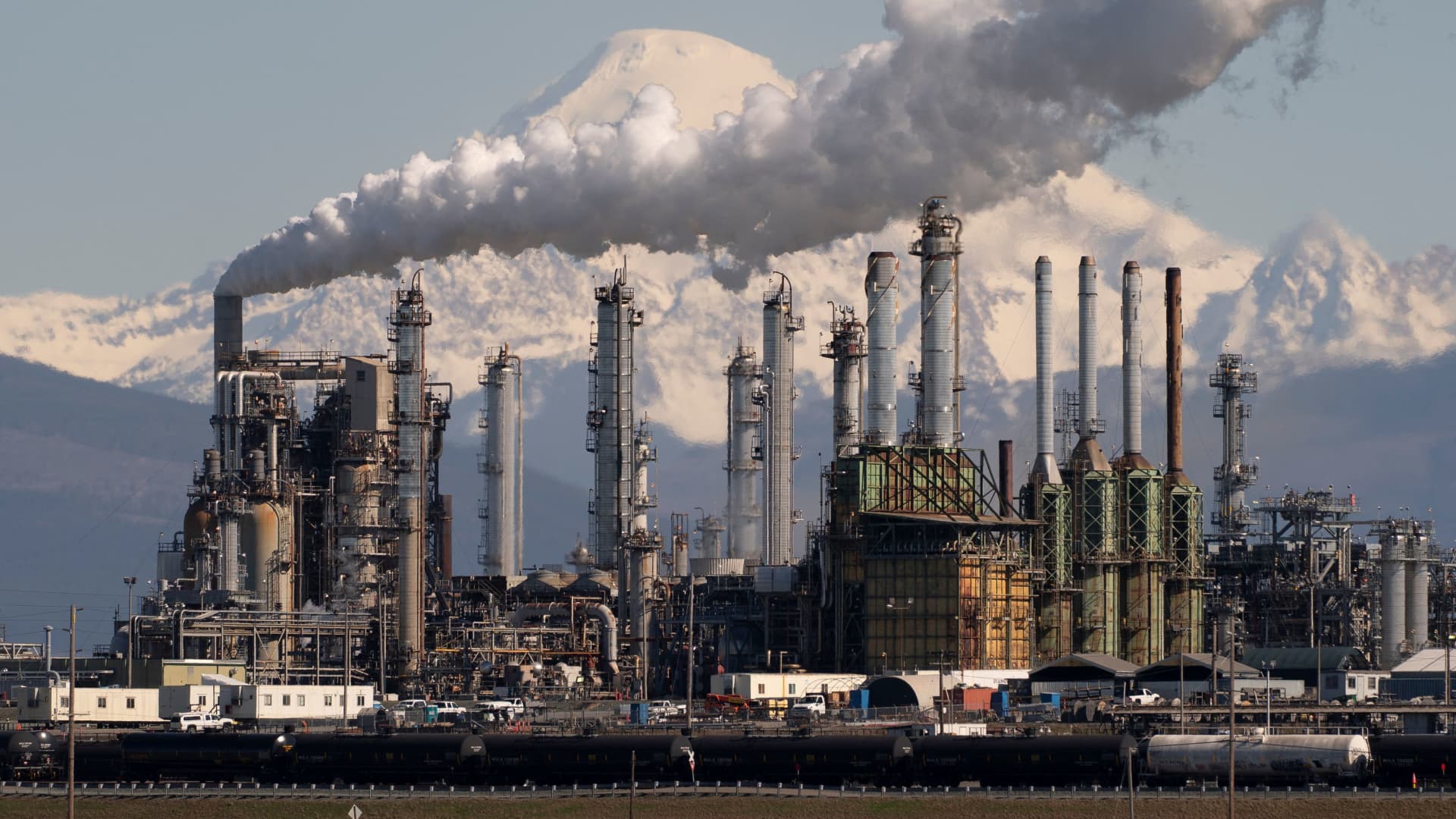
LONDON — Oil prices dropped sharply on Thursday after reports that U.S. President Joe Biden is considering the release of up to 180 million barrels from the country’s strategic petroleum reserve (SPR).
Biden is set to give remarks later on Thursday, with multiple outlets reporting that the plan to cool soaring crude prices will involve the release of around 1 million barrels of oil per day for several months.
International benchmark Brent crude futures for May fell 3.7% to $109.21 per barrel by around 8:20 a.m. London time, paring earlier losses. U.S. crude futures for May delivery slid around 4.6% to $102.89 per barrel.
Gasoline prices have surged to record highs on Russia’s invasion of Ukraine and subsequent supply concerns, driving spikes in inflation across the global economy.
Russia is the world’s second-largest exporter of oil, and unprecedentedly punitive international sanctions following the invasion have disrupted flows out of the country.
In a research note Thursday, Goldman Sachs commodity analysts said the reported release from U.S. reserves would help the oil market toward rebalancing in 2022, but would not resolve its structural deficit.
“This would reduce the amount of necessary price-induced demand destruction, the sole oil rebalancing mechanism currently available in a world devoid of inventory buffers and supply elasticity,” Goldman Sachs said.
“This would remain, however, a release of oil inventories, not a persistent source of supply for coming years. Such a release would therefore not resolve the structural supply deficit, years in the making.”
They added that lower prices in 2022 would support oil demand while slowing the acceleration in U.S. shale production, leaving a deficit in 2023 and a likely need to refill the U.S. reserves.
The International Energy Agency will hold an emergency meeting on Friday to discuss oil supply concerns, Australian Energy Minister Angus Taylor announced on Thursday.
The Organization of Petroleum Exporting Countries and its allies including Russia (known as OPEC+) will also hold a meeting later on Thursday and is expected to maintain its existing deal to slowly increase production, after cutting output substantially during the Covid-19 pandemic and associated fall in demand.




